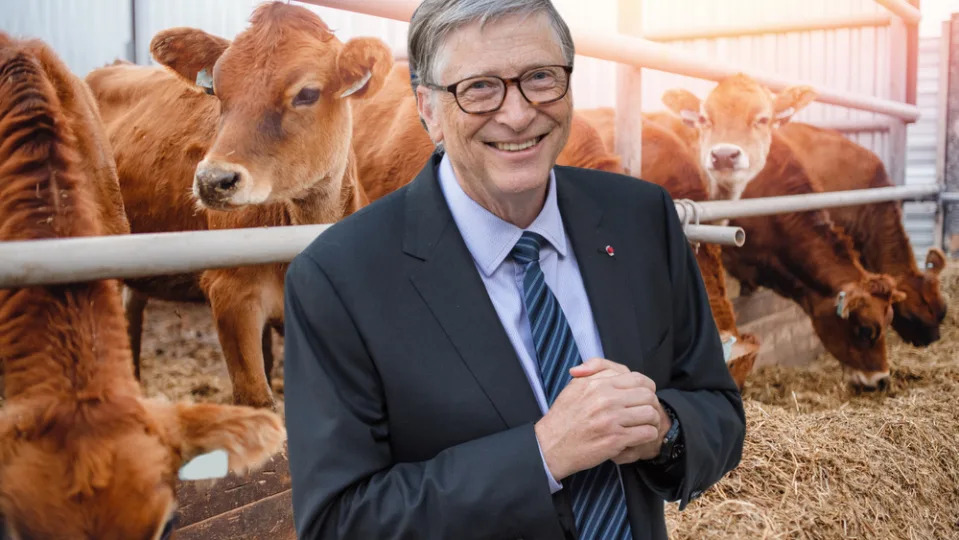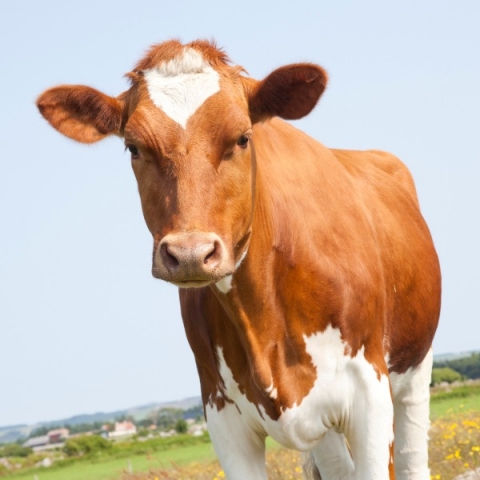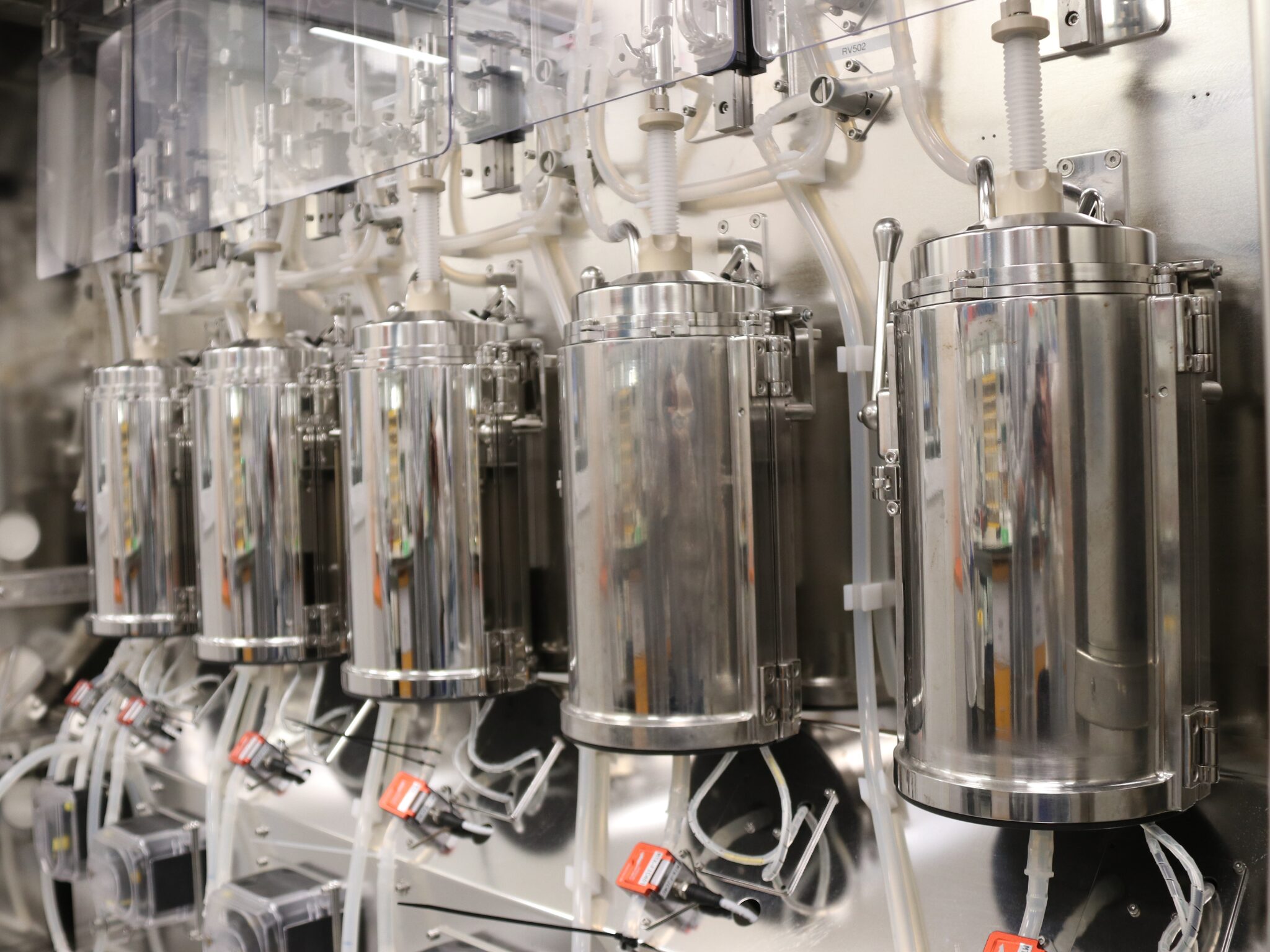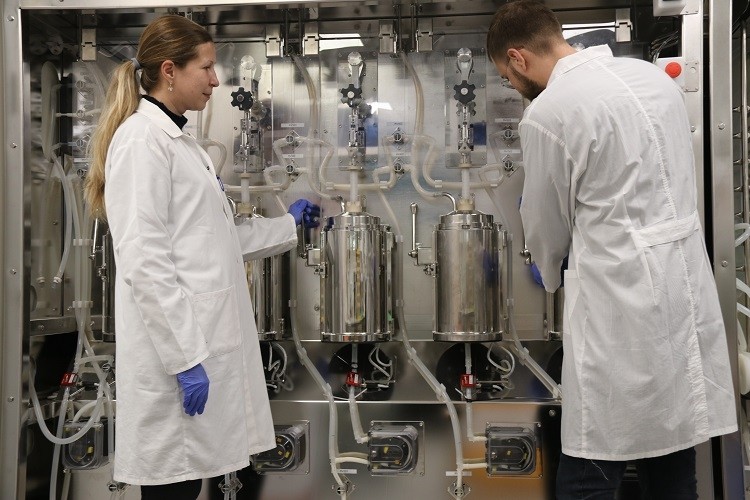Bill Gates is buying farm land but nikkas want to eat lab grown meat.
Have to remember some of these people are agents on here.


Bill Gates-Backed Lab-Grown Meat Company Receives USDA Approval — Here's When You Can Expect To Taste This New Protein Delicacy
If you feel bad for the animals when you eat meat, a solution is coming. UPSIDE Foods, a California-based lab-grown meat company, recently announced that it received approval from the U.S. Department of Agriculture (USDA) to start commercial production and sales of its cultivated chicken. In...
Bill Gates-Backed Lab-Grown Meat Company Receives USDA Approval — Here's When You Can Expect To Taste This New Protein Delicacy
Jing PanMon, Jul 3, 20234 min read
206

If you feel bad for the animals when you eat meat, a solution is coming.
UPSIDE Foods, a California-based lab-grown meat company, recently announced that it received approval from the U.S. Department of Agriculture (USDA) to start commercial production and sales of its cultivated chicken.
In November 2022, the company received the green light from the U.S. Food and Drug Administration (FDA).
"I'm thrilled to share that cultivated meat will now be available for consumers in the U.S.," UPSIDE Foods Founder and CEO Dr. Uma Valeti said in a press release. "This approval will fundamentally change how meat makes it to our table. It's a giant step forward toward a more sustainable future — one that preserves choice and life."
UPSIDE Foods is a unicorn — a privately held startup company valued at more than $1 billion. In April 2022, the company closed a $400 million Series C funding round, bringing its valuation to over $1 billion.
The company is backed by many heavyweight investors, including the Abu Dhabi Growth Fund, business magnate Sir Richard Branson, SoftBank Group Corp. and Microsoft Corp. Co-Founder Bill Gates.
While high-profile investors are embracing this new technology, traditional agriculture remains relevant.
For instance, Gates has made significant investments in the agriculture sector. According to a 2022 land report, Gates owns around 275,000 acres of farmland in the U.S.
When asked about his extensive ownership of farmland in a Reddit Ask Me Anything session earlier this year, Gates said, "I own less than 1/4000 of the farmland in the U.S. I have invested in these farms to make them more productive and create more jobs. There isn't some grand scheme involved — in fact, all these decisions are made by a professional investment team."
While Gates has been busy investing in farm properties, new companies have innovated ways for people to earn passive income in the real estate market. Here's how to invest in rental properties with as little as $100 while staying completely hands-off.
Whether you like the idea of lab-grown meat or not, the technology addresses the issue of animal welfare: The production of cultured meat does not require the rearing and slaughtering of animals.
How To Try This New Culinary Delight
UPSIDE Foods did not provide a date for when its products will become available. But it did announce a partnership with Michelin three-star chef Dominique Crenn to launch its cultivated chicken at her San Francisco restaurant Bar Crenn.The company is holding a contest "where consumers can enter for a chance to be among the first in the United States to eat UPSIDE's cultivated chicken." You can check UPSIDE's social media accounts for details.
UPSIDE is not the only company that makes lab-grown meat. GOOD Meat, a division of food technology company Eat Just Inc., has also received approval from the USDA and the FDA for its cultivated chicken to be sold to American consumers.
Also based in California, GOOD Meat said that production is starting immediately.
But restaurants are still the best bet if you want to be among the first to taste the new product. GOOD Meat said that its first batch of cultivated chicken "will be sold to celebrated restaurateur and humanitarian Chef José Andrés." Andrés is the owner of José Andrés Group, which operates more than 30 restaurants.
The company added that a yet-to-be-disclosed Washington, D.C., restaurant will be the first in the U.S. to serve GOOD Meat's cultivated chicken.
GOOD Meat has already been selling its products in Singapore.
 why they so averse to this??? Let the free market decide
why they so averse to this??? Let the free market decide 







 I gotta make a list going forward
I gotta make a list going forward